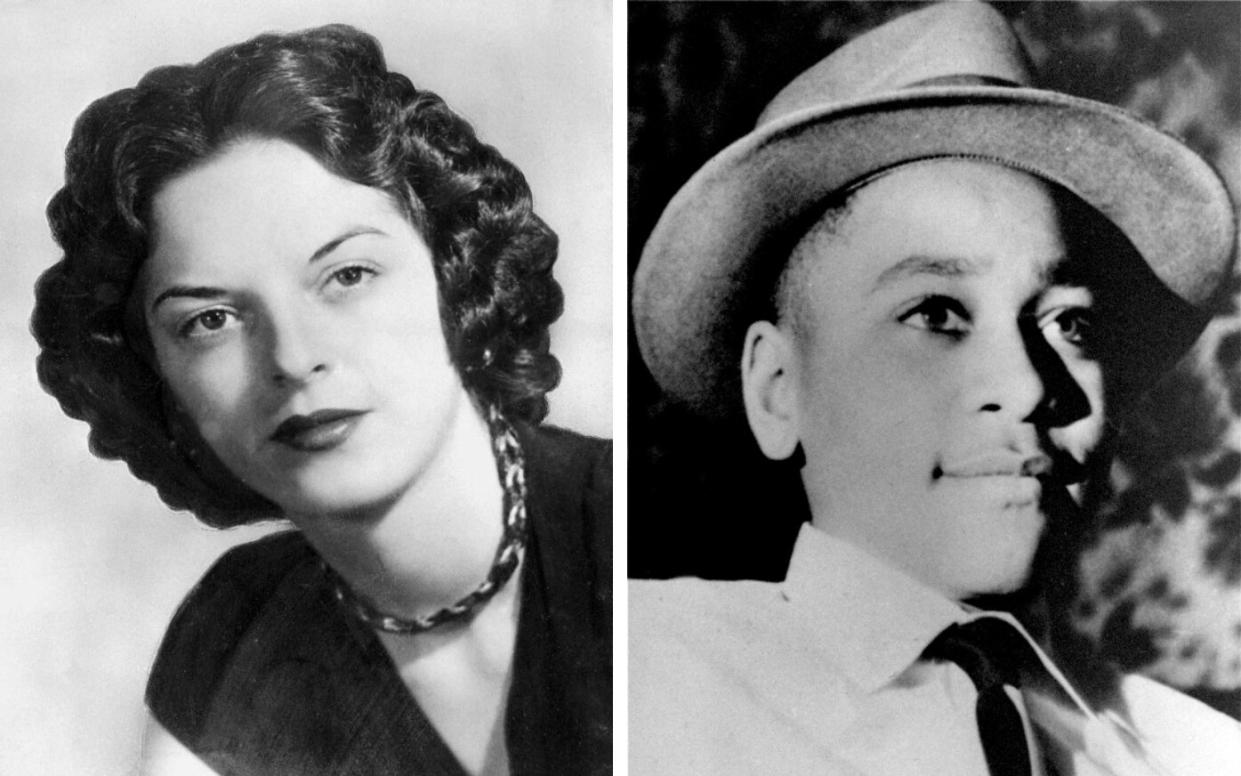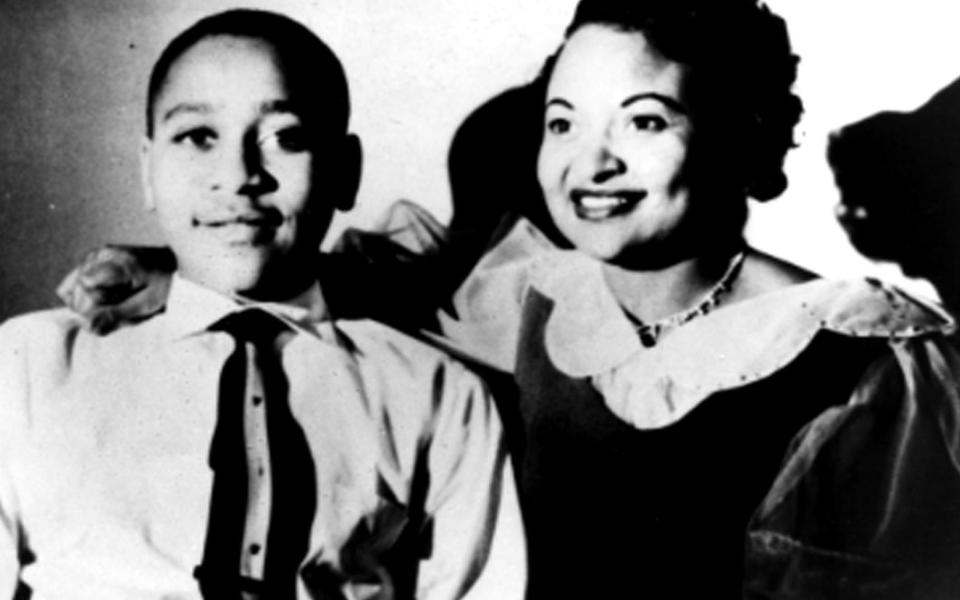Family of lynching victim Emmett Till seek justice after finding 1955 warrant

- Oops!Something went wrong.Please try again later.
- Oops!Something went wrong.Please try again later.
In the summer of 1955, Emmett Till was accused of making a lewd pass at a white shopkeeper in Money, Mississippi.
Four days later the 14-year-old black boy was lynched by her relatives in what would become one of the most emblematic cases of racial injustice in America’s civil rights era.
Sixty-seven years on, Till’s family are now calling for the arrest of the woman, Carolyn Bryant Donham, after rediscovering a warrant against her in the dusty archives of Lefore County.
Ms Donham, who was 21 when she made the accusation, is now 88. According to the old warrant, she was involved in kidnapping Till.
Despite two failed reopenings of the case in the last 20 years, Till’s cousin Deborah Watts and her daughter, Teri, continued to search for evidence that they hoped might see somebody jailed for the killing.
They knew that the warrant against Ms Bryant Donham existed because it was publicised at the time of the murder, despite not being acted on.
But the Leflore County archives have no indexing system beyond sorting documents into boxes labelled by decade, leaving them with a monumental task in finding it.
‘Serve it and charge her’
Ms Watts and her helpers, part of the Emmett Till Foundation which she heads, were able to narrow the search down to boxes relating to the Fifties and Sixties, but that was it.
Finally, after years of systematic searching, one of the boxes gave forth exactly what they were looking for: the warrant charging Ms Bryant Donham with kidnapping.
The county clerk, who certified the warrant as genuine, said the group had “got lucky” in their search.
“Serve it and charge her,” Teri Watts said.

The warrant was not executed at the time, the then-county sheriff told reporters, because he did not want to “bother” the woman since she had two young children to care for.
Ricky Banks, the current sheriff of Leflore County, told reporters he would investigate whether action needed to be taken.
However, legal experts said it was unlikely that the warrant would be considered still valid by a judge. Instead, it may need to be used in conjunction with new evidence as justification for arresting and interrogating Ms Bryant Donham.
“If you went in front of a judge you could say, ‘Once upon a time a judge determined there was probable cause, and much more information is available today,’” said Ronald Rychlak, a law professor at the University of Mississippi.
The case against Ms Bryant Donham would appear to hinge on how heavily involved she was in the lynching itself.
On the afternoon of August 24, 1955, Till had visited the Bryant's Grocery & Meat Market in Money, Mississippi, to buy sweets with friends, having skipped church.
Brutally disfigured body shocked the world
What happened next is disputed, but Ms Bryant Donham claimed that the young teenager from Chicago with a stutter whistled at her before grabbing her hand and crudely propositioning her.
Four days later, her husband Roy and his half-brother JW Milam drove to Till’s great uncle’s house where he was staying and abducted him at gunpoint.
They then brutally beat him, before shooting him in the head, tying an industrial fan to his neck with barbed wire and throwing his body into the Tallahatchie River.

Till’s lynching became a totemic moment for the civil rights cause thanks to his mother. At his funeral in Chicago, she insisted on an open casket and invited journalists alongside the thousands of mourners.
The pictures of Till’s face, so disfigured as to be unrecognisable – he was identified by a ring he was wearing – were seen across the United States and the world, galvanising civil rights activists.
Bryant and Milam faced trial for the murder but were acquitted by an all-white, all-male jury that took just 67 minutes to reach a verdict. The two men later admitted to the killing in a magazine interview.
Both died decades ago.
What Till’s family hope to prove is that Ms Bryant Donham was in the pickup truck with her husband when he went to find the teenager and that she helped identify him.
The US government previously reopened the investigation into Till’s murder in 2018, only to close it again without new charges in 2021.
That followed Ms Bryant Donham allegedly admitting in a book that she lied about the accusations. However, when interviewed by the FBI she denied lying in court and investigators could not find evidence to prove otherwise.
A 2004 reopening of the case also failed after three years when a grand jury declined to indict anyone.
In March, Congress finally passed an anti-lynching law, named after Till, following more than 200 failed attempts over a 120-year period.

